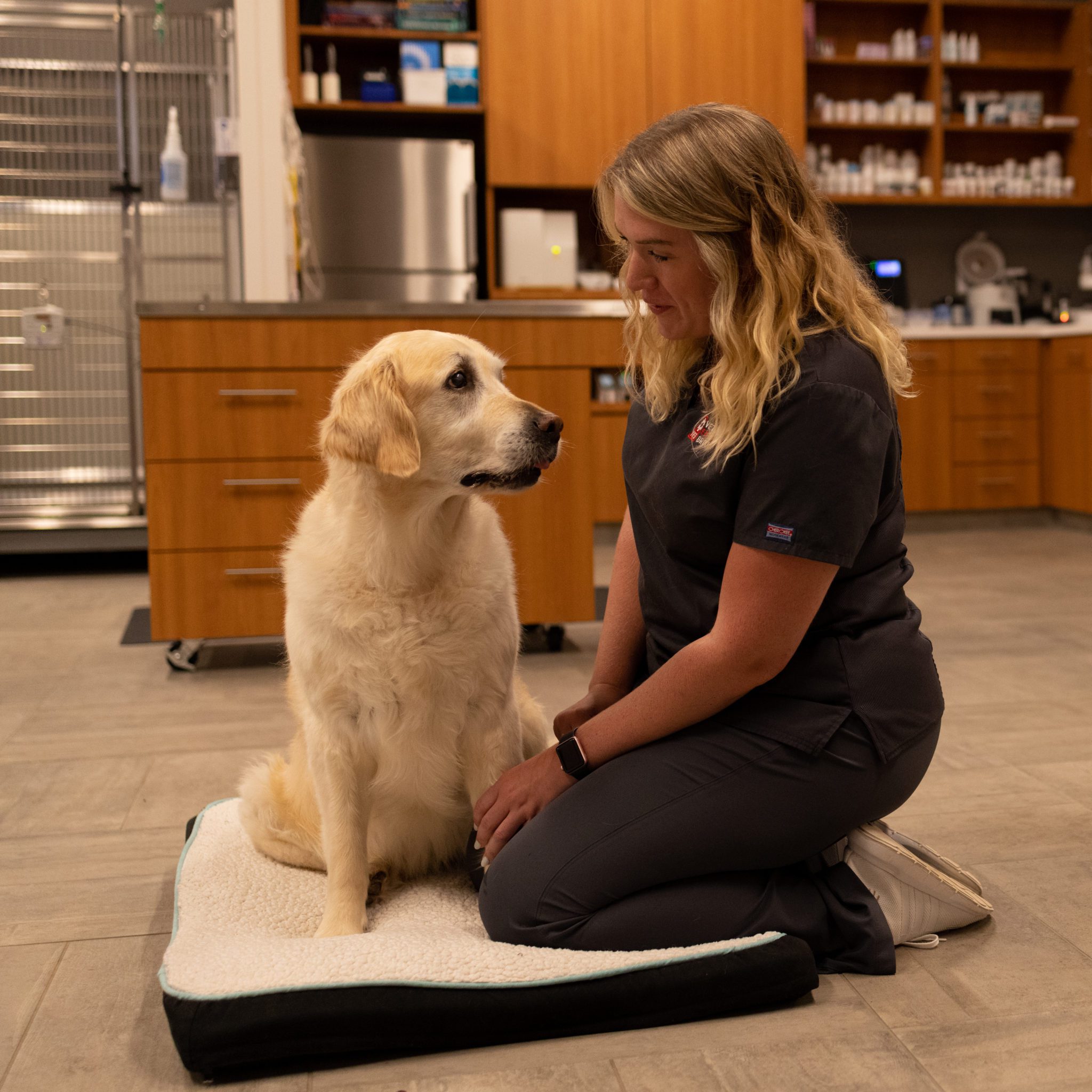
Can Dogs Eat Turkey?
Dr. Stephanie Howell
Call & Speak with a doctor Open 24/7, Even Holidays!
Walk in today for:
Emergencies
Point-of-Care Ultrasound
Urgent Care
X-Rays
Diagnostics + Testing
End-of-Life Care
Surgery
Treatment + Hospitalization
With the holidays fast approaching, more and more pet owners once again find themselves asking the same question that comes around every year: can dogs eat turkey? If you’re thinking of feeding your dog turkey but you’re wondering if it’s safe to do so, you’re in the right place!
In the article below, we’ll explore some of the most important information you need to know about feeding your dog turkey. You can use this information to figure out when it might be appropriate to give your canine friend a little bit of turkey during the holidays. Read on to find out more.
Important Things to Know When Determining Whether or Not Dogs Can Eat Turkey
To help answer the question on whether or not it’s safe to feed your dog turkey, there are some key things you need to know about this food and how it may impact your dog’s health. When in doubt, call your vet or an emergency vet to find out the best solution, as they’ll be able to guide you in the best direction for your pet.
Below are 3 important questions to ask when determining if dogs can eat turkey:
Is Turkey Toxic?
No, turkey is not toxic at all to dogs (or cats!). Many dogs enjoy a diet of kibble, wet food, or both that contains turkey as one of the leading ingredients. In fact, turkey contains a wide variety of healthy nutrients for dogs, such as phosphorus, and it is a good source of protein for your pet as well. And as an added bonus, most dogs love the taste of turkey and are more than happy to eat it!
Make Sure to Monitor How Your Dog Eats Turkey
With all that said, however, it is important to always monitor the way your dog eats turkey. Just because you’ve roasted a turkey for your family, that doesn’t necessarily mean it’s a safe choice for your pet.
Additionally, you should always watch how much turkey your dog eats, as too much can be harmful to his digestive system. Overdoing it with turkey can lead to serious results, including pancreatitis, which is dangerous and potentially deadly without the right treatment.
Start with just a few bites of turkey so you can determine how much your pet can eat without stomach upset.
What About Other Ingredients That Can be Cooked with Turkey?
There are some ingredients that can be used with turkey that are harmful for your dog and others that pose no harm to their health. We break down the different ingredients that are harmful and the ones that are safe for your pet below.
Harmful Ingredients
The biggest danger in feeding your dog turkey lies in the other ingredients that are cooked with the turkey. Spices, seasonings, and some vegetables that may seem perfectly fine for you to eat on your turkey may be dangerous to your pet, and it’s important to avoid these when feeding your dog.
Garlic and Onions
Some of the most dangerous ingredients often included with turkey are onions and garlic. These ingredients can not only cause severe stomach upset in dogs, but they can even damage your dog’s red blood cells when eaten in high quantities.
Salt
Another important ingredient to pay attention to in your dog’s turkey is salt. Dogs do not need nearly as much sodium in their diets as humans do, and they cannot handle much sodium, either. Because of this, you should prepare turkey for your dog that has not been seasoned with any salt, or any other spices for that matter. Plain turkey is the best plan for your pet.
Safe Ingredients
Some ingredients often cooked with turkey that are safe for your dog to eat in small quantities include celery, apples, and carrots. Feeding your dog turkey with these ingredients is not only safe but also provides a good source of nutrients.
If you have any questions about this or want further confirmation, don’t hesitate to contact your vet or an emergency vet if it’s during the holidays to find out for sure.
What is the Safest Way to Feed Turkey to Dogs?
Now that we’ve established that dogs can eat turkey in the right conditions, it’s a good idea to figure out the best, safest method of preparing and serving turkey for your dog.
Here are the things you need to do in order to make it safe for your dog to eat turkey:
Make Sure the Turkey Wasn’t Cooked with Any Spices or Other Ingredients
Ideally, you should prepare turkey for your dog that contains no seasonings or spices whatsoever and has not been cooked along with any other ingredients. Absolutely always avoid onions and garlic, but be cautious with other add-ons as well.
Make Sure the Turkey Pieces are Bite-Sized
Break the turkey up into small enough pieces for your dog’s size, and do not overfeed your pet.
Double Check the Turkey to Make Sure There’s No Bones or Skin
Remember to double-check the turkey you give your dog to ensure it does not contain any bones. Even large dogs who seem like they would be able to chew up turkey bones should never be fed this part of the turkey, as bones can not only present a choking hazard for your pet, but can also become obstructed in your pet’s intestines.
Remove the skin from the turkey before giving it to your dog, too. The skin is fatty and is much more harmful for your dog than the rest of the turkey, so it’s best to just avoid it.
Talk to Your Vet for More Information
Be sure to talk with your vet for more information about feeding your dog turkey. If your dog has any food allergies or sensitivities, make sure to speak with your veterinarian before introducing any new ingredients into your dog’s diet.
So, Can Dogs Eat Turkey?
It is usually safe to give your dog turkey, as long as you’re mindful of the other ingredients present and you don’t overdo it. Of course, if you have any worries at all about your pet’s health and wellness, you should avoid feeding him table scraps, as “people food” can sometimes exacerbate other health problems.
If you have any other questions, be sure to talk to your vet for more information. Your vet will let you know if and when it is appropriate to give your dog turkey and can also instruct you on the proper method of preparing turkey for your dog.
However, if you notice that your dog has eaten turkey and you’re not sure if that’s okay, call our team at VEG right away. All of our locations are open 24 hours on holidays, so you never have to wait to find out what the next best steps are for your pet. Our emergency veterinarians will talk with you directly about when dogs can eat turkey and when you should seek veterinary care if this happens. For more information about this, or if you think your pet needs immediate care, contact us today.

